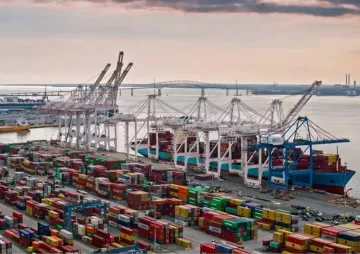A final draft resolution at the United Nations, passed in July 2014, has focused on the UN General Assembly's review process of World Summit on the Information Society outcomes implementation. India has been lauded for its leadership in producing this document which calls information and communication technologies (ICTs) 'enablers and drivers for the achievement of Millennium Development Goals and the promotion of the economic, social and environmental components of sustainable development and should be given due consideration in the elaboration of the post-2015 development agenda.' There is also another achievement India is proud of; the document reaffirms the centrality of the General Assembly to this review process, as well as the role of the Commission on Science and Technology for Development in assisting the Economic and Social Council as the focal point in the system-wide follow-up. In his statement on the matter, India's Permanent Representative to the UN Ambassador Asoke Mukerji, welcomed this document as a win for multilateral negotiation processes. He also welcomed that the fact that the review has been mandated as an "intergovernmental negotiation process" which takes into account inputs from member states, observer states, observers and all relevant WSIS stakeholders.
What exactly is this WSIS then? The WSIS, as it is known, was a two phase UN summit that strived to achieve a vision of a 'people-centric, inclusive and development-oriented Information Society where everyone can create, access, utilize and share information.' This meeting included not just governments in the process of crafting a vision of the future, but civil society, businesses, engineers and academics as well. It held its first meeting in Geneva, Switzerland in 2003, and its final meeting in Tunis, Tunisa in 2005. By the time it had concluded, the WSIS had prepared a document known as the Tunis Agenda. The document had focused on the particular problem of the 'digital divide', giving information and communication technologies (ICTs) a pride of place as a development tool. In its first part, the document focused on the financial instruments needed to bridge this digital divide, the document 'encouraged governments' to 'give appropriate priority to ICTs, including traditional ICTs such as broadcast radio and television, in their national development strategies.' The document also gave weight to the growing importance of ICTs as a development enabler, to achieve the goals and objectives of the Millennium Development Goals and called for a 'Digital Solidarity Fund'.
The Tunis Agenda also went on to focus on internet governance mechanisms, and called for a multistakeholder effort to build an information society. It also suggested that 'governments and other stakeholders should identify those areas where further effort and resources are required, and jointly identify, and where appropriate develop, implementation strategies, mechanisms and processes for WSIS outcomes at international, regional, national and local levels.' The document certainly acknowledged the leading role of governments, and even had a clause for 'enhanced cooperation' stating: 'we further recognize the need for enhanced cooperation in the future, to enable governments, on an equal footing, to carry out their roles and responsibilities, in international public policy issues pertaining to the Internet, but not in the day-to-day technical and operational matters, that do not impact on international public policy issues.'
There was another facet to WSIS. The process had actually sought to involve multistakeholders in internet governance, inviting business and private sector to actively participate in the intergovernmental preparatory process of the Summit and the Summit itself. Unfortunately, the exact nature of this involvement was never quite clear, and the end result was a bitter fight about the contours of participation. Ultimately, the official (government) WSIS declaration was accompanied by a Civil Society WSIS Declaration as well, entitled 'Shaping Information Societies for Human Needs.' Since then, a struggle over a government-led internet governance structure or a multistakeholder internet governance system has been raging. And in the intervening years, the internet itself has matured, the global cyber market has grown, as has crime, and the promises of ICT for development are steadily being acted upon the world over. Many have sought to 'retire' the Tunis Agenda as it espouses a classical, pre-Internet view of policy making that reserves it exclusively to sovereign states, thought it should be pointed out that the document also created the Internet Governance Forum, a global multistakeholder platform that feeds into internet policy issues around the world.
In a sense, this resolution, negotiated by India on behalf of Group of 77 and China, is a continuing effort by the country to keep alive the multilateral mechanisms relating to internet governance issues relevant, with specific focus on issues that matter to developing countries; bridging the digital divide being a good example. In this context, this move, to complete modalities for the overall review of the outcomes of WSIS has special significance. This significance should also be seen in the backdrop of Indian participation at Netmundial in Brazil in 2014, where the Indian representative squarely listed out India's desire to achieve an 'equinet' and talked of the 'the role of the governments in the Internet governance, of course in close collaboration and consultation with other stakeholders is an imperative,' a strategy being demonstrated with further engagement with the UN system.
Courtesy: Internetrights.in
The views expressed above belong to the author(s). ORF research and analyses now available on Telegram! Click here to access our curated content — blogs, longforms and interviews.

 PREV
PREV

